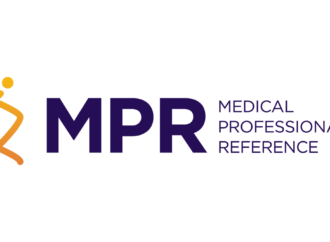What is nitrous oxide? Nitrous oxide is a colourless gas, also known as ‘laughing gas’. It can be misused for its psychoactive effects – or to ‘get a high’ – by inhalation. Changes made to the law Prior to 8 November 2023, nitrous oxide was subject to the Psychoactive Substances Act 2016. It is already
What is nitrous oxide?
Nitrous oxide is a colourless gas, also known as ‘laughing gas’. It can be misused for its psychoactive effects – or to ‘get a high’ – by inhalation.
Changes made to the law
Prior to 8 November 2023, nitrous oxide was subject to the Psychoactive Substances Act 2016. It is already illegal to produce, supply, import or export nitrous oxide where a person knows, or is reckless as to whether, it will be consumed for its psychoactive effects. However, it had not been an offence to possess nitrous oxide (except in a custodial setting).
We are updating the law to make possession of nitrous oxide illegal from 8 November 2023 if it is, or is likely to be, wrongfully inhaled, by classifying it as a Class C drug under the Misuse of Drugs Act 1971.
It will be a criminal offence to be found in possession of the drug where its intended use is to be wrongfully inhaled, ‘to get high’. Where a person is found in possession of nitrous oxide and intends to wrongfully inhale the substance and/or in the cases of importation, exportation, production and supply, knows or is reckless as to whether it is likely that another person will wrongfully inhale it, they will be committing an offence.
“Wrongful inhalation” means inhalation other than for medical or dental purposes, and which is not accidental inhalation of nitrous oxide which has been released into the atmosphere (such as in industrial processes). Medical, dental and veterinary administration of nitrous oxide (which may involve inhalation) will therefore continue to be lawful, as will other activities such as use in industry or model rocketry. There is a requirement on importers, exporters, producers and suppliers to take appropriate steps to not be reckless, to ensure that subsequent users will not inhale the substance recreationally.
From 8 November, those found in unlawful possession will face either an unlimited fine, a visible community punishment or a caution – which would appear on their criminal record. Repeat serious offenders may face a prison sentence of up to two years, an unlimited fine, or both.
The penalty for supply or production will double, to up to 14 years in prison, an unlimited fine, or both.
Why changes have been made
We have been growing increasingly concerned about misuse of nitrous oxide and its impact on society.
Heavy nitrous oxide use can result in serious health harms such as neurological damage and even death due to the risk of falling unconscious and/or suffocating from the lack of oxygen.
Associated antisocial behaviour causes wider harm felt by communities and to the environment. This includes group gatherings to abuse the drug in public spaces, such as children’s parks or high streets, and subsequent littering of the discarded canisters. There have also been deaths connected to drug driving incidents.
In 2020/21, nitrous oxide was the third most used drug among 16- to 59-year-olds in England and Wales according to Part 8: Drug use prevalence and consumption – NHS Digital.
An Office for National Statistics ONS report suggested that equates to around 230,000 young people who inhaled this harmful substance in England and Wales in the year ending June 2022.
Why did the government not follow the advice of the Advisory Council on the Misuse of Drugs (ACMD)?
The ACMD did highlight anecdotal reports of an increase in both social and neurological harms, including the risk of neurological harm it presents to users when consumed in extreme volumes.
The government is entitled and expected to take a broader view and consider other relevant factors. We know that visible drug use is one of the biggest issues of antisocial behaviour people are concerned about in their local areas and it is clear the harms of nitrous oxide misuse are being felt by communities.
There is still more evidence to collect about the full extent of the harms of nitrous oxide, so we have gone further than the ACMD advice, taking action to keep people safe and crack down on antisocial behaviour.
Legitimate use of nitrous oxide
There are a broad range of legitimate uses of nitrous oxide, for example pain relief in medical settings, including dentistry. It is also used legitimately in industry, for manufacturing and technical processes, such as food packaging, but also in catering, as a whipped cream propellant. Hobbyists also use it in activities such as motorsport drag racing and model rocketry.
How will people prove they are lawfully possessing or consuming nitrous oxide?
This will be a matter for police to investigate using their own discretion on a case-by-case basis.
If in possession of nitrous oxide, it will be for the defendant to show that they fall within the scope of the exception, and so to demonstrate that they possess the drug for legitimate purposes.
Size of canisters that are illegal to possess without legitimate reason
All sizes of nitrous oxide canisters are illegal if the supplier or owner does not have a legitimate use.
What you should do if you see someone inhaling nitrous oxide
You can report antisocial behaviour by contacting your local neighbourhood policing team through https://www.police.uk/
Call 101 to contact the police and report a crime that is not an emergency.
You can also contact Crimestoppers to report a crime anonymously. They will pass the information about the crime to the police at www.crimestoppers-uk.org
Telephone: 0800 555 111
How people should dispose of canisters
Check and see your council’s guidelines on nitrous oxide canister disposal: https://www.gov.uk/find-local-council
Will hospitals still be able to provide nitrous oxide to patients who need it for medical reasons?
Yes. The exemptions for legitimate uses of nitrous oxide, include use in hospitals and for medical purposes.
Is a licence required to lawfully possess, produce or supply nitrous oxide?
Licences to use nitrous oxide will not be required, as this would place an undue burden on a large number of industries and individuals who use it for legitimate purposes.
Those using nitrous oxide for legitimate medical use (as per all medical products) will continue to need a medical licence but there is no change to existing processes and licences. Please find further guidance here: Apply for a licence to market a medicine in the UK – GOV.UK (www.gov.uk)
Steps producers and suppliers can take to ensure they are complying with the law
In order to demonstrate that the supplier/importer/vendor has not been reckless as to supplying for non-legitimate use, it is expected that they will have taken reasonable steps to verify that the use is legitimate.
Retailers should consider the following:
- warning signs in store or on products themselves
- training to help staff assess the likelihood that nitrous oxide is being bought for its psychoactive effect
- updating training and age-restriction policies (young people are considered to be a particular risk group)
- limiting quantities of substances to be sold in one purchase
- not also selling paraphernalia which could be used to inhale the drug
At the point of sale, retailers should further consider the following:
- is the product being purchased known to be misused
- what are the circumstances of the sale, for example quantity and time of day
- is the customer a repeat purchaser
- is the customer known for psychoactive consumption
For example, someone buying a single canister on a weekday alongside other household and baking goods differs to young people buying a number of nitrous oxide canisters on a weekend.
Staff at the point of sale should consider whether it’s likely that a product is being purchased on behalf of another person (by proxy) and what that intended use is.
If the cashier has suspicions, they could ask the customer why they are buying the product. Does their explanation sound credible? If not they are within their rights to decline the sale.
Online retailers should further consider the following:
-
Is the address for delivery credible, for example if a large quantity of nitrous oxide is being delivered to a catering company then suspicions are likely to be minimal; but if it is to non-business address such as student university halls of residence, this supply could be reckless;
-
What else is the purchaser buying, for example consumption paraphernalia such as balloons or crackers, particularly in high volumes;
-
Monitoring customer feedback of high-risk products (such as nitrous oxide) and taking appropriate preventative action where this suggests misuse
There is no expectation for a retailer to go above and beyond what is reasonable.
Legal requirements for venues to confiscate nitrous oxide canisters if found on their premises or during a customer search
Responsible night-time economy venues should have a clear policy on confiscation of nitrous oxide canisters or refusal of entry for customers with nitrous oxide. As nitrous oxide is now classified as a Class C drug, any existing policy relating to the handling of controlled drugs on the premises should be applied to nitrous oxide. It is a reasonable assumption that people attempting to enter a venue in this way may intend to wrongfully inhale the drug.
An occupier of a premises or a person concerned in the management of any premises may be at risk of committing an offence if they knowingly permit nitrous oxide to be supplied on their premises.
Drug lessons in schools to teach facts on illegal drugs
As part of statutory health education, pupils are taught the facts about legal and illegal drugs and their associated risks.
We have published a teacher training module on drugs, alcohol, and tobacco, as part of a wider suite of teacher training materials: Teacher training: drugs, alcohol and tobacco. This module covers substance misuse.
We have also worked with the Office for Health Improvement and Disparities (OHID) to make sure good quality teaching resources are available for teachers delivering drug, alcohol and tobacco education.
These lesson plans include content on nitrous oxide and are available on the PSHE Association’s website: Drug and alcohol education (pshe-association.org.uk)
Help for people struggling with drug addiction
You should speak to your GP or phone 111 for advice on healthcare matters.
FRANK, the government’s free national drugs information and advice service, provides information on nitrous oxide. It outlines the harms associated with nitrous oxide, such as dizziness, vitamin B deficiency and nerve damage that can result from heavy long-term use. It has been recently updated to reflect new and emerging patterns of use, such as the use of larger canisters.
You can call the Frank drugs helpline on 0300 123 6600 or find your local service here: Find drug and alcohol support near you | FRANK (talktofrank.com)
People should not be discouraged from seeking help
Access to drug treatment is strictly confidential unless a person is a risk to themselves or others, for example: if someone presents as a suicide risk, if there are safeguarding concerns, or there is a risk of serious crime.
Treatment for nerve damage caused by nitrous oxide use
Heavy regular use of nitrous oxide can lead to a deficiency of vitamin B12 and to a form of anaemia. Severe B12 deficiency can lead to serious nerve damage, causing tingling and numbness in the fingers and toes. This can be very painful and make walking difficult. It can even lead to paralysis, and the damage may be lasting.
The vitamin B deficit and nerve damage associated with very heavy nitrous oxide use can be treated with hydroxocobalamin, usually by a neurologist. If you think you have nerve damage you should seek medical help.
Please visit FRANK for further information on nitrous oxide and its harms. Nitrous Oxide | Laughing Gas | FRANK (talktofrank.com)
Tackling the illegal supply of nitrous oxide
The government is determined to crack down on the organised criminals behind illicit drugs supply.
Through our 10-year Drug Strategy, we have stepped up our response, attacking all stages of the supply chain to make the UK a significantly harder place for organised crime groups to operate in. As part of our ‘supply attack plan’, we are tackling the supply of drugs upstream, securing the border, and disrupting the highest harm organised crime groups.
The sale of illegal drugs online is listed as a priority harm in the Online Safety Bill. This ground-breaking piece of legislation will compel tech companies to consider the risks associated with all elements of their services and take action to keep users safe. All companies in scope of the Online Safety Bill will need to take action to prevent illegal content on their platforms and sites.
We are clear that online companies must take responsibility for embedding public safety in their system designs in order to prevent harmful material on their platforms. We expect tech companies to have robust processes in place to swiftly remove illegal content. The sale of illegal drugs online is listed as a priority harm in the Online Safety Bill. This ground-breaking piece of legislation will compel tech companies to consider the risks associated with all elements of their services and take action to keep users safe.
All companies in scope of the Online Safety Bill will need to take action to prevent the use of their services for criminal activity.
Illegal content will need to be removed expeditiously and the risk of it appearing and spreading across their services will need to be minimised by effective systems. Illegal content is that which constitutes a UK criminal offence and meets the definition of harm.
For the priority categories set out in Schedule 7 of the legislation, companies will need to take particularly robust action. These offences pose the greatest risk of harm and take account of the number of people likely to be affected and the severity of the harm. This includes offences relating to the sale of drugs.
For these harms, companies will need to consider the necessary systems and processes to identify, assess and address these offences based on a risk assessment.
More information
Daniel Spargo-Mabbs Foundation – A Quick Guide to Nitrous Oxide
Nitrous oxide or ‘laughing gas’ – Re-Solv: Solvent Abuse Charity
Home Office circular 006/2023: Control of nitrous oxide under the Misuse of Drugs Act 1971
 Internet Connectz
Internet Connectz 












Leave a Comment
Your email address will not be published. Required fields are marked with *